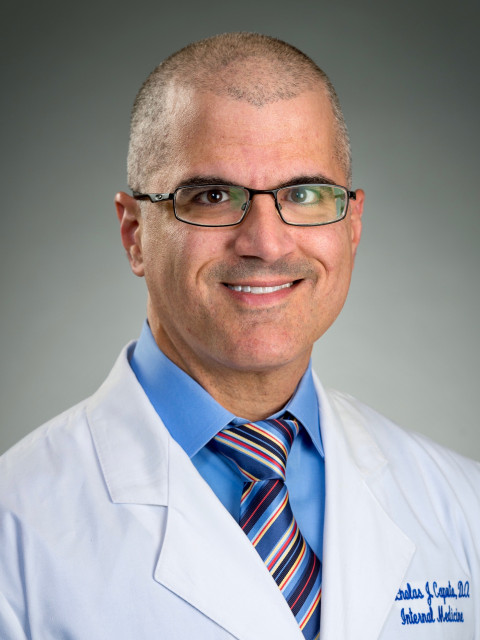
Finding Balance and Healing: A Physician’s Guide to Ho'oponopono
by Nicholas J. Caputo, DO, FACOI
August 14, 2024
In the demanding world of medicine, where the weight of responsibility and the pressures of caring can sometimes lead to unintended harm or emotional strain, finding avenues for personal wellness and healing is essential. Ho'oponopono, an ancient Hawaiian practice centered on reconciliation and forgiveness, offers a profound framework that physicians can integrate into their lives to restore balance and cultivate inner peace.
Understanding Ho'oponopono
Ho'oponopono, at its core, is about making things right and restoring pono — a state of balance and harmony. It acknowledges the interconnectedness of all beings and the profound impact our actions can have on others and ourselves. For physicians, this practice can be particularly transformative, addressing feelings of remorse, fostering forgiveness, and nurturing gratitude and love.
Remorse: Acknowledge and Heal
As healers by nature, there may be moments when we realize that our actions, however well-intentioned, may have caused harm. Ho'oponopono encourages us to confront these feelings of remorse openly and without judgment. Recognizing that everyone and everything is interconnected, we understand that harming others also harms ourselves. This awareness forms the foundation for genuine healing.
Forgiveness: The Path to Liberation
Central to Ho'oponopono is the act of forgiveness. It begins with a sincere desire from the heart to seek forgiveness from those we have harmed, knowingly or unknowingly. Equally important is forgiving ourselves for any perceived shortcomings or mistakes. By letting go of resentment and embracing forgiveness, we liberate ourselves from the burdens of guilt and regret.
Gratitude: Finding Growth in Adversity
Even in difficult situations, there are lessons to be learned. Practicing gratitude allows us to appreciate the growth opportunities presented by challenging experiences. By thanking those who have taught us these lessons, we acknowledge their role in our personal and professional development, fostering a mindset of continuous learning and resilience.
Love: Connecting Beyond Physical Presence
In Ho'oponopono, love transcends physical proximity. Whether in person or through visualization, expressing love and compassion towards others is a powerful healing force. Imagine holding hands and smiling with those you seek to connect with on a deeper level, cultivating a sense of unity and compassion, even if that person is no longer with us or receptive to our process.
Awareness: Empathy and Compassion
Completing the Ho'oponopono process involves cultivating heightened awareness of our impact on others and the world around us. This heightened awareness naturally leads to greater empathy and compassion in our interactions with patients, colleagues, personal relationships, and ourselves. By striving to be mindful of our thoughts and actions, we contribute positively to our healing environment.
The Ho'oponopono Mantra: Healing Words for the Soul
The mantra "I am sorry, please forgive me, thank you, I love you" encapsulates the essence of Ho'oponopono. Whether directed towards others or ourselves, these words cleanse toxic energies and pave the way for love and light to fill our spirits, intellects, and emotions. It is a powerful tool for personal and professional renewal and is routinely used as a meditation.
Conclusion: Embracing Healing Practices
As physicians, incorporating holistic healing practices like Ho'oponopono into our daily lives can have profound benefits. By acknowledging our interconnectedness, seeking forgiveness, expressing gratitude, and fostering love and awareness, we not only heal ourselves but also contribute positively to the healing of those we serve. Let us cleanse our minds, hearts, and spirits of negativity and embrace the transformative power of Ho'oponopono. In doing so, we honor our commitment to pono — restoring balance and harmony within ourselves and the world around us.
Note: The views expressed in this article are the author’s own and do not necessarily represent the views of ACOI.

